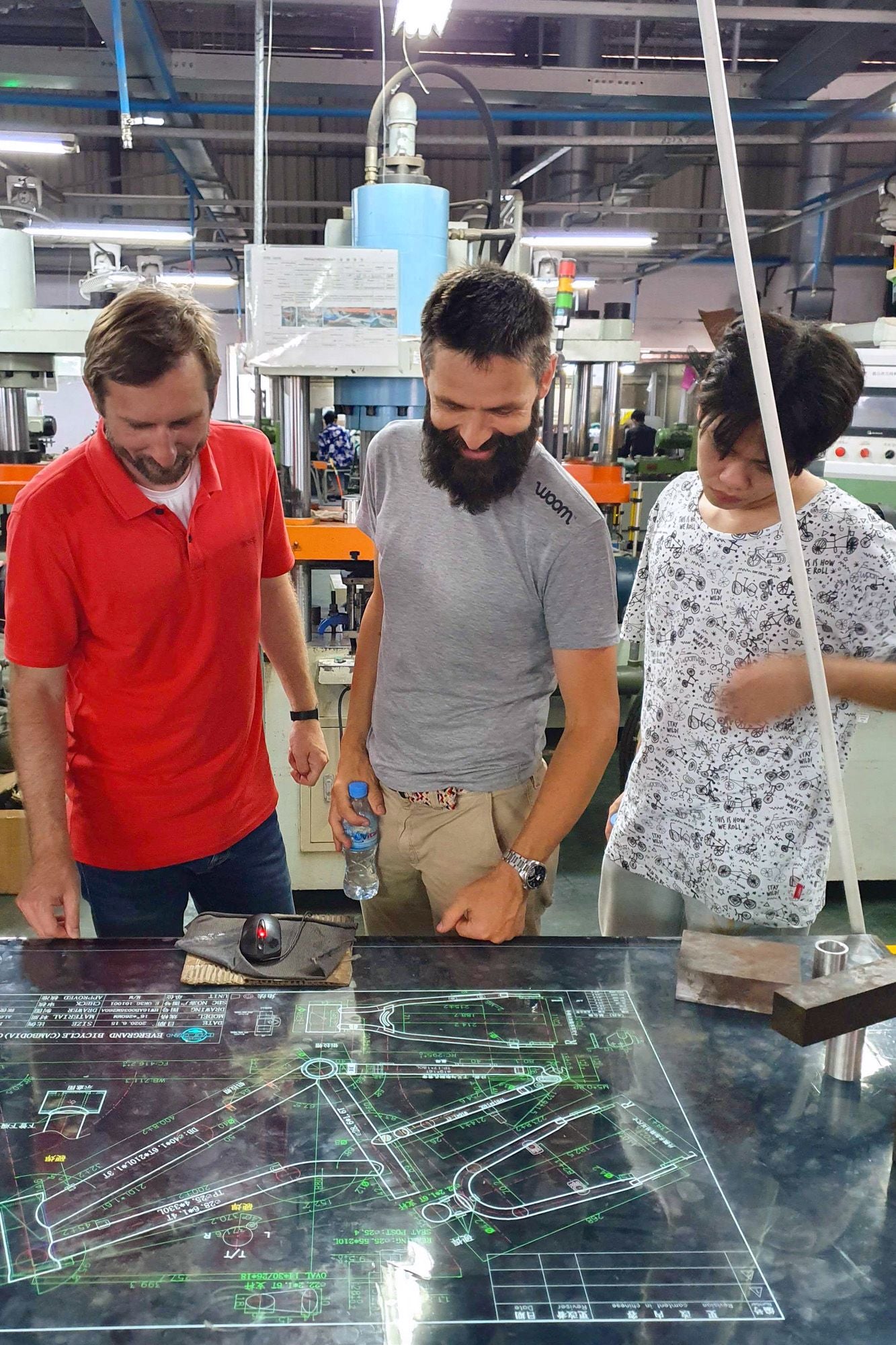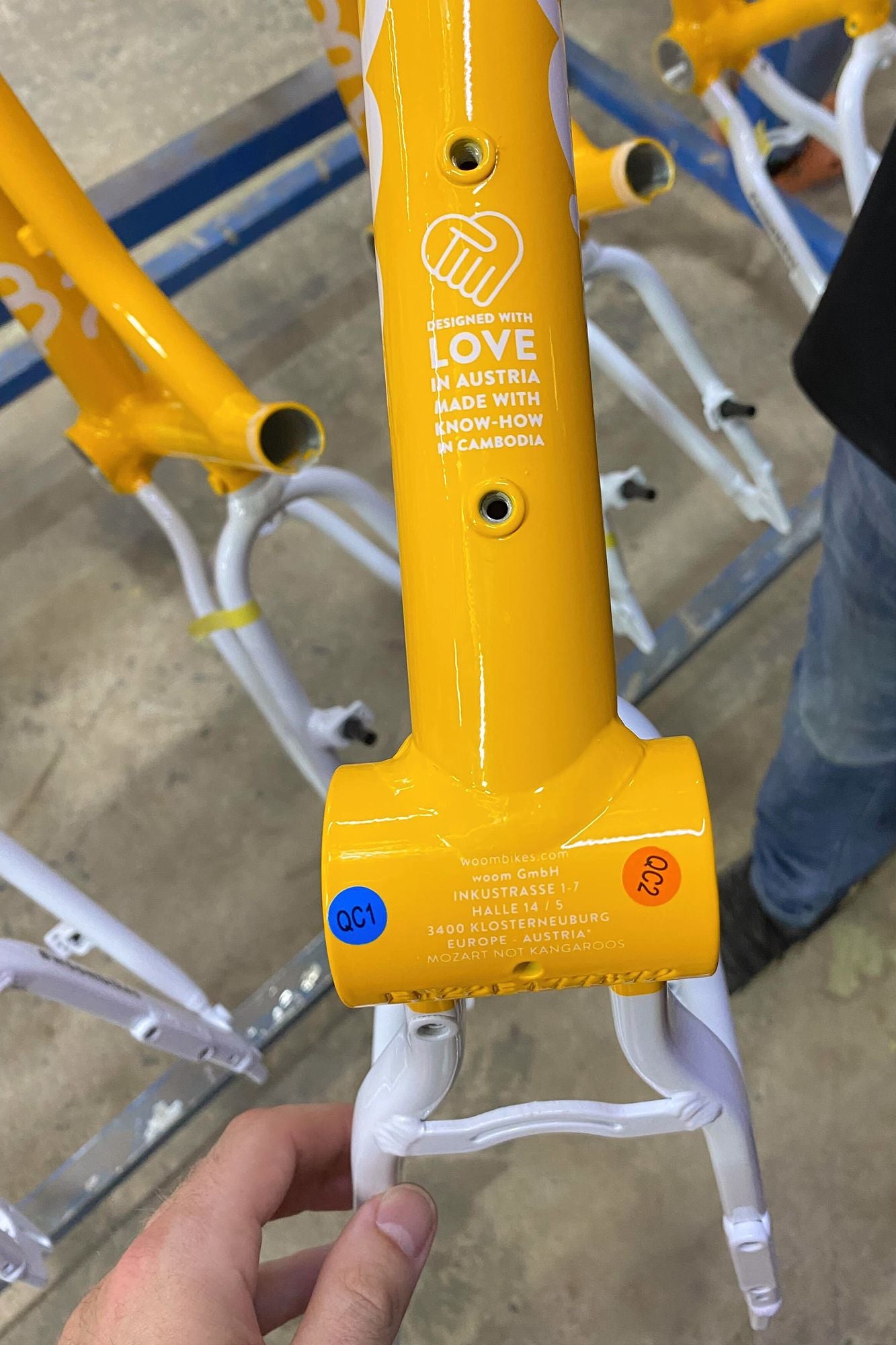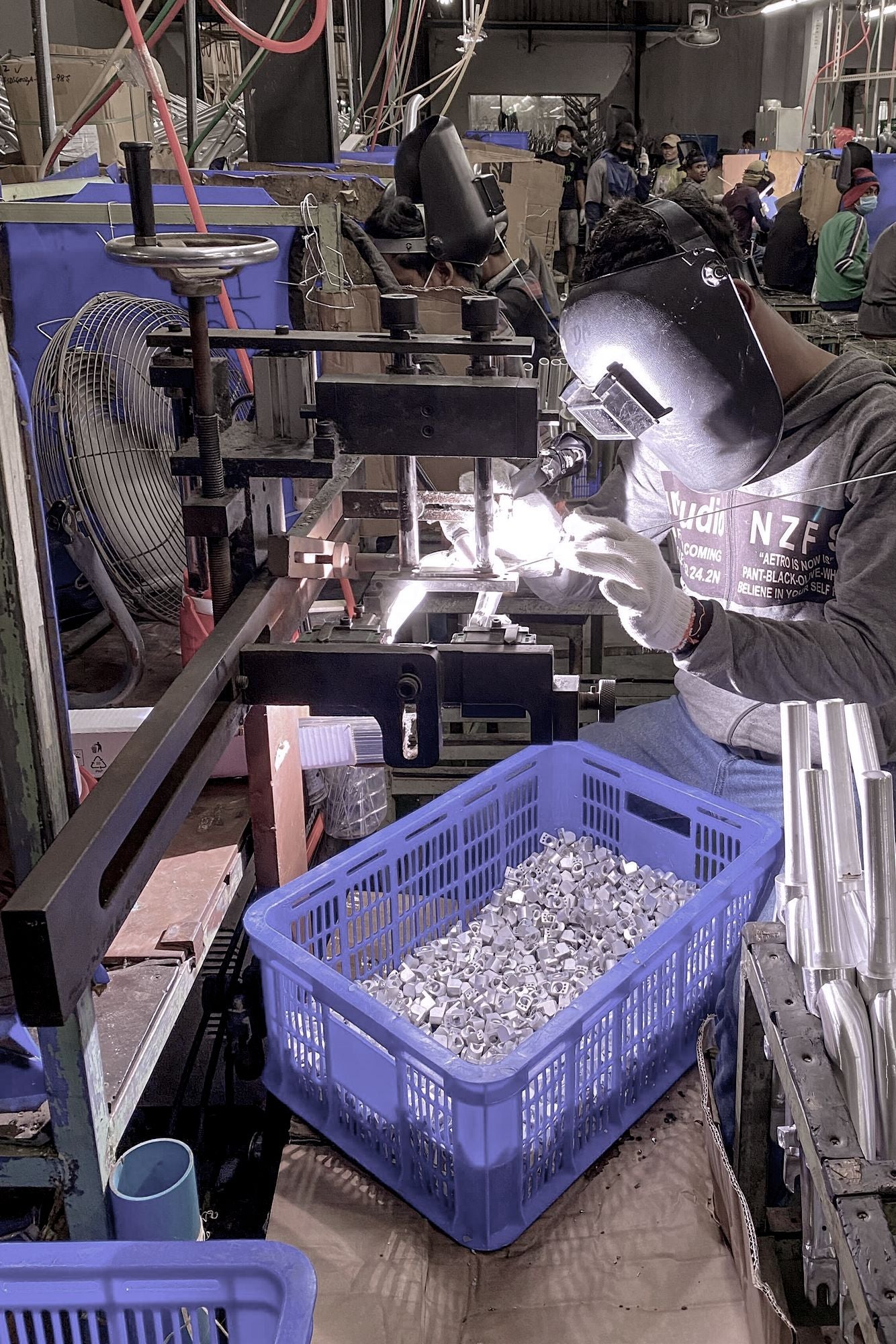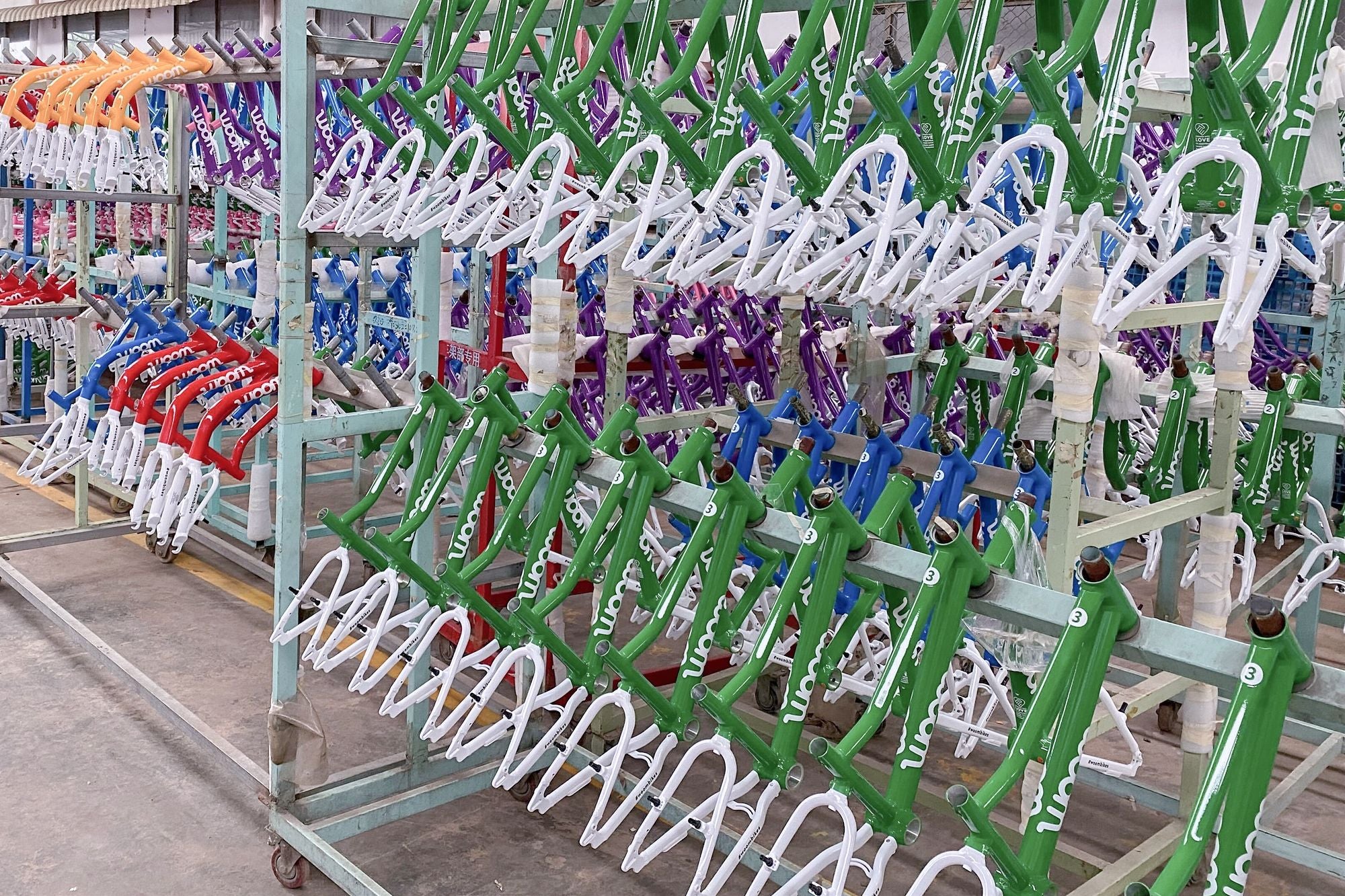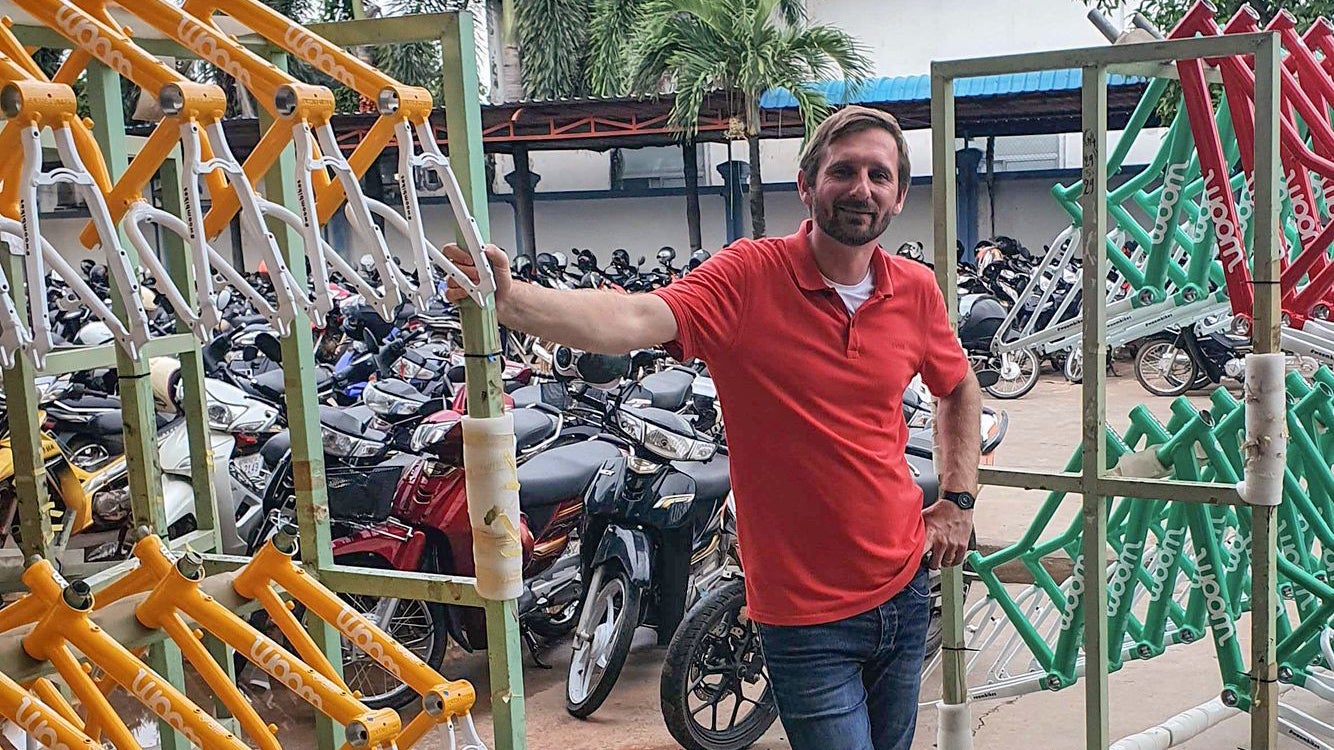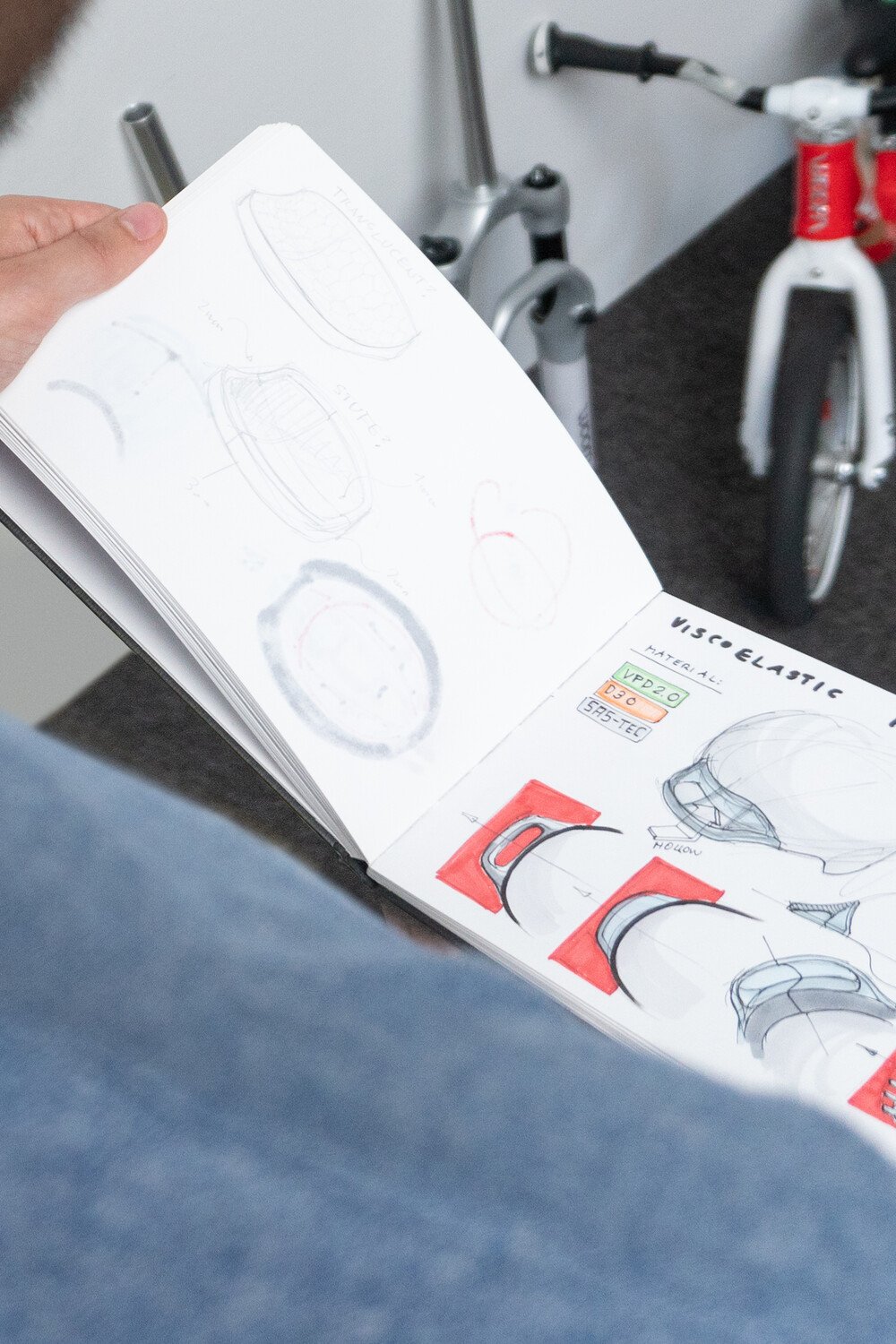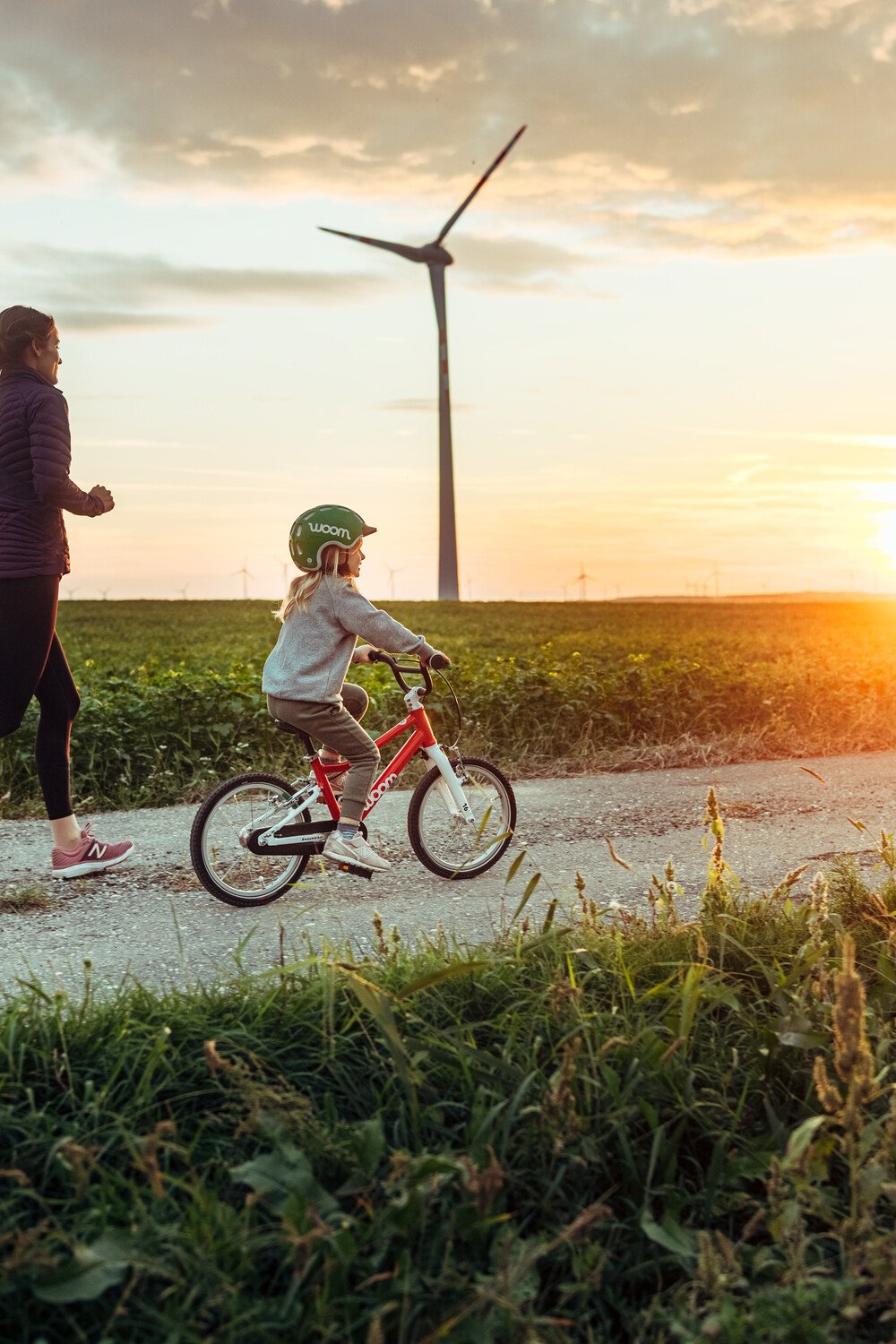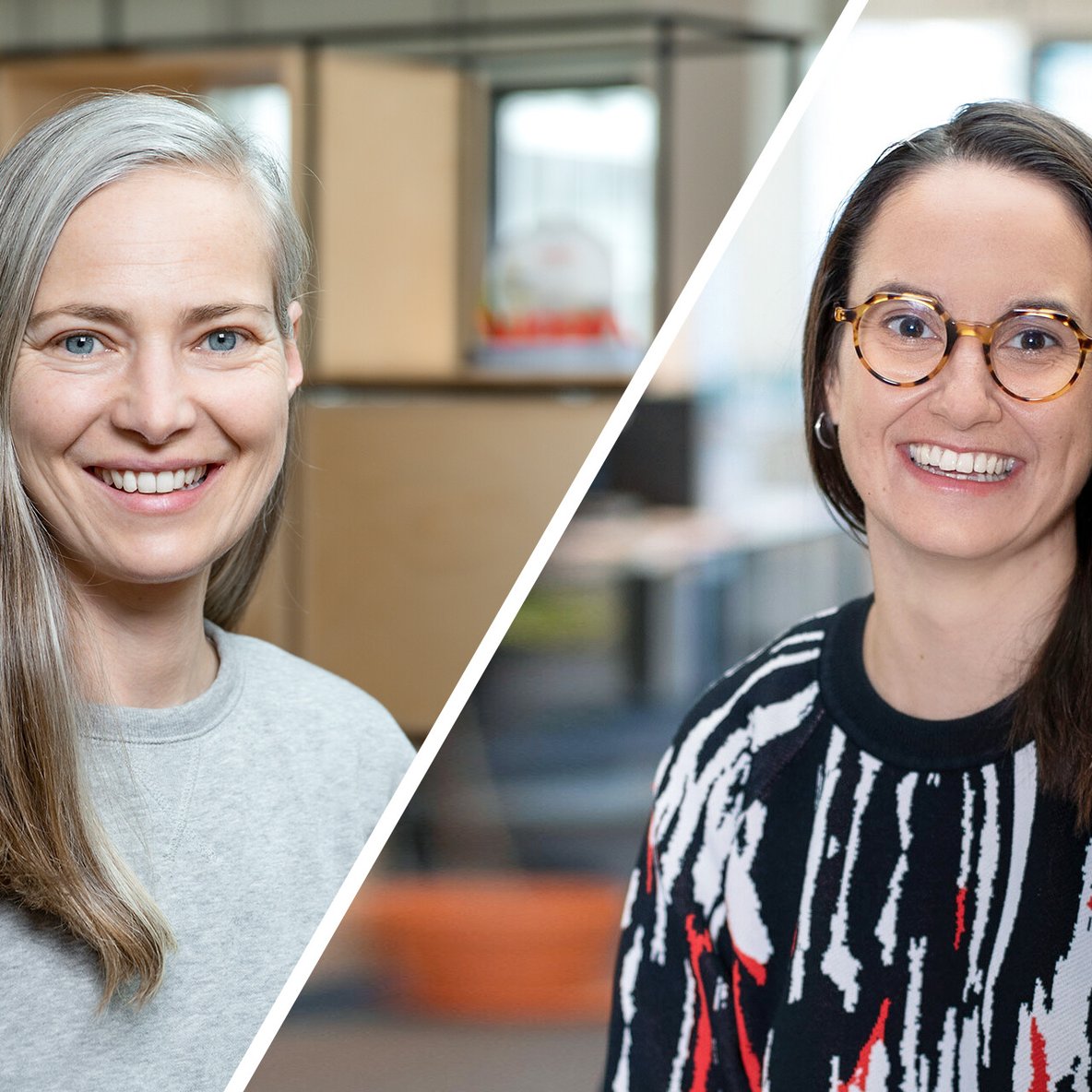Quality control at woom: An interview with Christian Petermann
Christian Petermann and a team of 15 have been responsible for quality control at woom since April 2022. We sat down with the mechanical engineer and business administration graduate to talk about how he makes sure that bikes reach customers in the quality they want, and why his wife had to stop him from continuously improving his garden table.
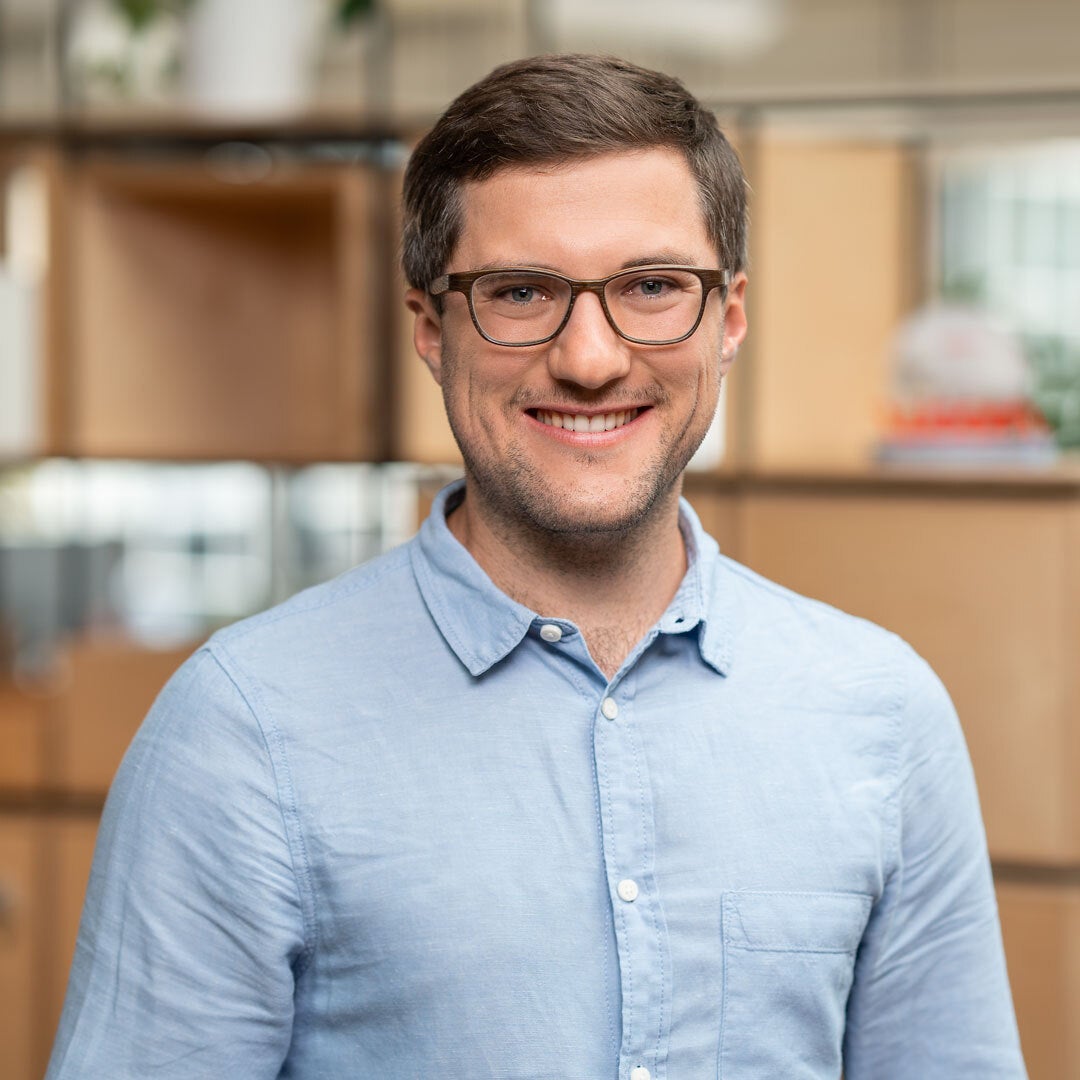
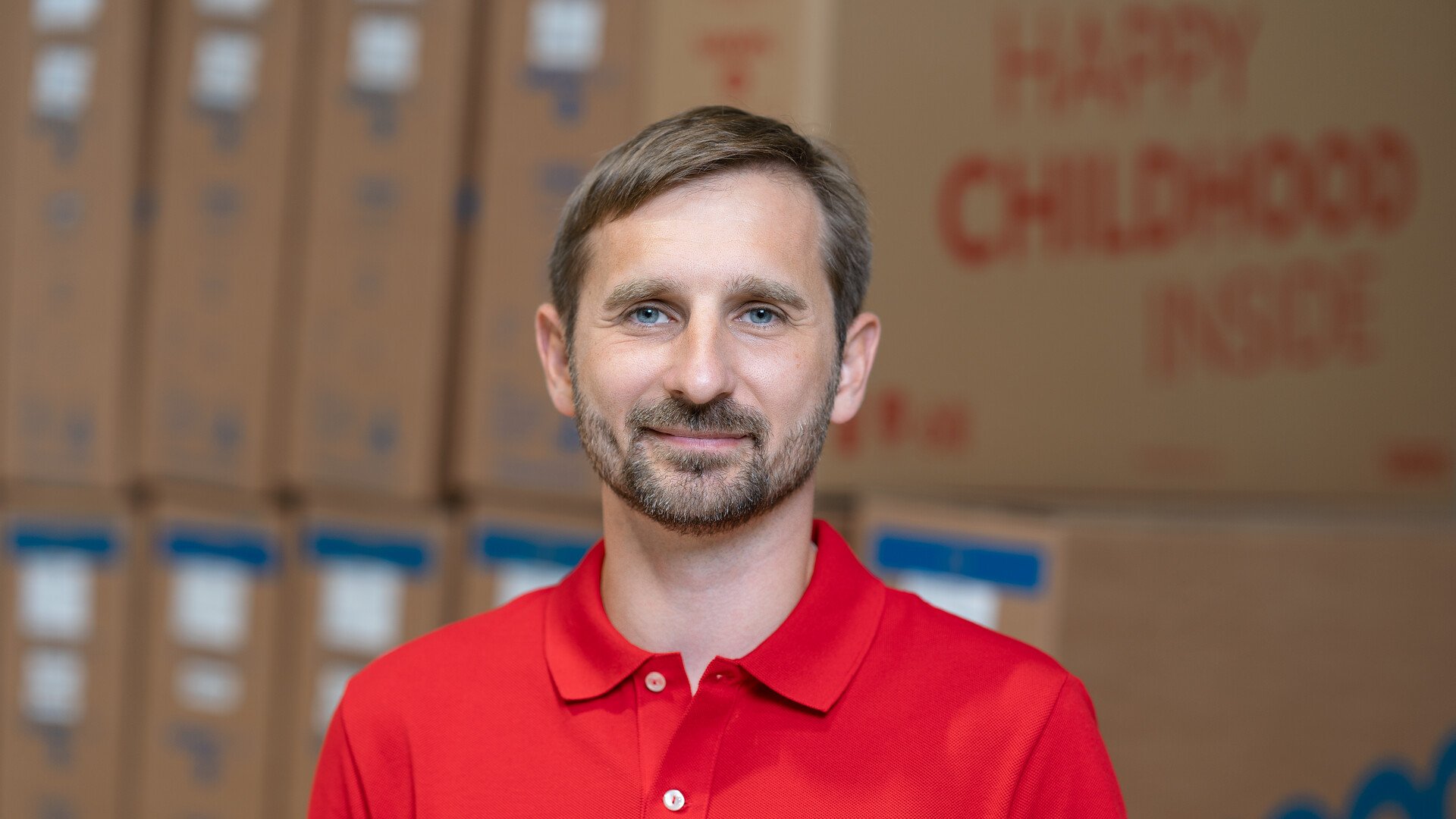
Christian, you are the Head of Quality Control and Manufacturing. Tell us about your job.
Ensuring the safety of our products is an absolute priority at woom. As a father myself, I know that we have an obligation to our customers because in making their purchasing decision they're entrusting us with the safety of their children.
My team and I are responsible for making sure that woom customers receive our products in the quality they want. We are guided by the standards defined and written down by our product development department.
In essence, we make sure that the products that come out of the factory are really as good as our product developers specified.
As head of manufacturing, I am also responsible for ongoing development of our production – in terms of manufacturing partnerships, automation solutions, value-added engineering that is, optimizing the manufacturing process – and enhancing our expertise.
How does quality control work at woom?
Quality assurance at woom is not just a single process, but several processes that are interlinked and involve many people and teams.
It begins with product development, when individual components are rigorously tested before being optimised for production at scale. The next step is product safety & compliance, when our experts Brenda and Alexandra make sure that our bikes and their components meet the various standards in our target markets.
My team and I come into play during production. Our job is to pay meticulous attention to ensuring that the manufacturing process is suited to meeting our high standards and actually meets them.
If something goes wrong – as is unfortunately sometimes the case in industrial production – then it is our job to find out why and take sustainable corrective actions to rectify the problems.
Christian discusses the design of a woom children's bike with his colleague Christian Schandl (centre) and external employee Tom Tan (right).
And how, exactly, do you do that?
In practise, we inspect our bicycles using a standardised checklist. The checklist for our woom ORIGINAL bikes, for instance, includes 34 items such as "brake pads" and "seatpost clamp".
We carefully inspect every component down to the smallest screw. We then categorise possible defects and discuss the test results with our suppliers.
Do you inspect each woom bike individually or do you do spot checks?
The comprehensive inspection I just described takes about 20 minutes per bike. So, with the several hundred thousand bikes we produce every year, inspecting each bike is not feasible. We can't even hire that many people.
Instead, we always build controls into the production process and constantly optimise procedures. We use the so-called AQL method for our spot checks:
AQL stands for "acceptable quality level". It is a statistical procedure that we use to determine the ideal sample size.
What do you do if you're not satisfied with the quality of the product?
In that case, we mainly apply failure-cause analysis. That involves going back along the production chain and looking to see where exactly the defect is occurring and what steps we can take to sustainably eliminate it.
By the way, sometimes the fault is not in production, but originates elsewhere: during transport, for example, or in poor packaging or final assembly.
For troubleshooting, we either rely on local partners representing woom on site or we send our EU and USA teams to the production sites, depending on the situation.
The frames for bicycles are developed in Austria and welded at various production sites in Asia.
woom is growing very rapidly. What impact does this have on product quality control?
woom started in 2013 in a small garage with a powerful idea and a unique product.
Christian Bezdeka and Marcus Ihlenfeld in Vienna, Austria, along with Mathias Ihlenfeld in Austin, Texas, started out by working on the bikes themselves, selling them, delivering them, and even teaching some children how to ride their new woom bikes.
Meanwhile, woom has grown very quickly. It is rare for a process that works well in a small start-up to work in a global company. Quality control is no different.
For us, this means that we've had to increase our staffing levels considerably. In early 2022, my colleague Christian still had three team members in the EU and two in the US. Eight months later, we now have fifteen people in quality control.
Many of them are located directly in the factories of our partner companies. They are recruited locally. This allows us to resolve problems quickly and directly at the production sites.
Where do you see the greatest need for improvement?
I think we need to do a better job of defining and standardizing processes. This involves things like lessons-learned documents and carefully structured kick-off meetings for new suppliers.
We need clear and well-defined responsibilities to make processes understandable and predictable. The goal is a continuous improvement process.
woom has defined sustainability as a key corporate goal and is committed to the United Nations Sustainable Development Goals. To what extent is it your role to ensure that production is environmentally friendly and fair? Particularly at our partner factories in Asia?
We evaluate our suppliers according to environmental and social aspects such as working hours, minimum wage, safety precautions and environmental standards. We regularly monitor this through both on-site staff and with visits by our EU and US teams.
Also, in the future, all suppliers will be subject to standardised inspections in the form of audits. Our sustainability manager Anna and our new head of sustainability Milica are currently working on developing an audit system.
View of a production hall in Bavet, Cambodia. Welding the aluminium frames for woom bikes requires a certain knack and a lot of experience, which is why our welders receive months of training.
How does a person become a quality manager anyway? And how did you become one?
The general answer is that there are degree programmes in quality management. Another training path is via certifications; that is, through courses at educational institutions. For example, you can get certified for the ISO 9001 standard and become an expert in quality management.
But you can also learn quality management through practical experience and by understanding how processes can be continuously improved.
I first came into contact with an ISO 9001 standard, a standard for quality management systems, during my school years at a mechanical engineering trade school.
As part of my final paper, I and one of my classmates wrote a quality management manual for a food manufacturer in Burgenland and worked out the best way to implement this standard in the company.
Then I worked for many years in international plant engineering. So, manufacturing has been my pet interest – product production, that is.
Why did you decide to work at woom?
My children love the brand. Then a few months ago I got the call from a headhunter and told my family about it over dinner. My children looked at me beaming with joy and said: "Dad, you have to sign. woom is so awesome!" So, for my children, the decision was made without hesitation.
For me personally, there were two other key reasons.
Firstly, I found the job extremely exciting because it spans two areas: by combining manufacturing and quality control, the opportunities for me are huge. Secondly, it was just an immediate fit for me on an interpersonal level. The first conversations with woom gave me an extremely good feeling.
Now, six months later, I can say that I feel really good about it and don't regret my decision for a second.
What are your strengths as a manager?
I am authentic and can impart enthusiasm. That is why my teams have joined me on a common path in the past. Even when the going gets tough and the occasional extra effort has to be made.
What is your relationship with cycling?
My children are enthusiastic woom riders. So I look at woom bikes mainly from the perspective of a dad who wants his children to enjoy sport with good equipment and to be safe on the road.
I, myself, have a bike and can ride (laughs), but I'm more of a football player. I know, I still have room for improvement in that department.
I have a good friend who is a passionate cyclist and was very happy about my new job, "Now we can finally talk about nitty-gritty," he said to me.
What surprised you when you started at woom?
The culture of dialogue. What surprised me most was that woom is so non-hierarchical. We try to reach a consensus with our colleagues and do not push off decisions to a higher level.
As a result, the information flow is of course immense. It took me some time to navigate it all in the beginning. I was just used to something different. But now I see the great added value: transparency, respectful interaction and appreciation strengthen team spirit.
What works better at woom than elsewhere?
woom has a very special spirit. The people here are really fired up about environmentally friendly mobility and child-friendly products. They're full of passion and enthusiasm. And they want to get children excited about cycling as a contribution to sustainable mobility.
We must not lose this passion and enthusiasm on our path to becoming a global player. We need to find the right balance in structuring and standardisation. Because the spirit is brilliant.
Safety is a priority at woom. Quality control for bike frames is carried out at random during production to ensure that they meet the high standard of woom.
Who has influenced you as a person? And, why?
My wife has had the greatest influence on me. We're very different kinds of people, and she is my regulator, so to speak. If I charge ahead somewhere, she asks me, "Is this really the right way to go?" That makes me think about my plans and maybe realise that my way is not necessarily the right way.
My wife has also taught me that at the end of the day, it's the people who count. I owe my capacity for empathy to her.
What is your biggest weakness?
Impatience. I am enthusiastic and like to explore new ideas. But hours of revisions and discussions are not my thing. I prefer to get things done right away.
What's your quirk?
I don't give up and keep asking. In that sense, I am a perfectionist. I recently copied a garden table that my wife showed me on Instagram, for example, and agonised over my work for a long time.
First, I thought about the right dimensions for the table. After that, I went in search of a sawmill that could cut us 3-metre larch beams to size.
For the steel table legs I worked out detailed fabrication drawings, really defining every drill hole and even the individual steps of the painting process. Fortunately, I have a friend who is a metalworker. (laughs)
Due to the size of the table, I assembled it directly on our deck. But measuring it and setting it up were extremely time-consuming. When one corner looked right, I had to re-adjust to the other.
"Is the table crooked? Is the edge lined up right? Is it straight now?" I peppered my wife with thousands of questions and kept improving the table until she finally said: "Christian, the table is perfect.
Are you still looking for new members of your team?
Yes. We're going to need quality control support on site in Asia. We are just getting started on the issue of manufacturing. So in the long run, we're going to be building that team as well.
Christian Petermann and his team are responsible for quality control of woom bikes. He documented his typical workday in Asia for us with his phone.
Q&A:
- What does your desk look like?
… orderly - What three things do you take with you to a desert island?
… my wife and my two children - Which film would you wholeheartedly recommend?
… The Notebook - If there were quality control in the animal kingdom, which animal would be in charge of it?
… the anteater - What moment from your personal life would you describe as "magical"?
… the birth of my children. - What moment in your professional life would you describe as "magical"?
… every time an idea becomes reality - What's your next journey?
… Croatia, next week
